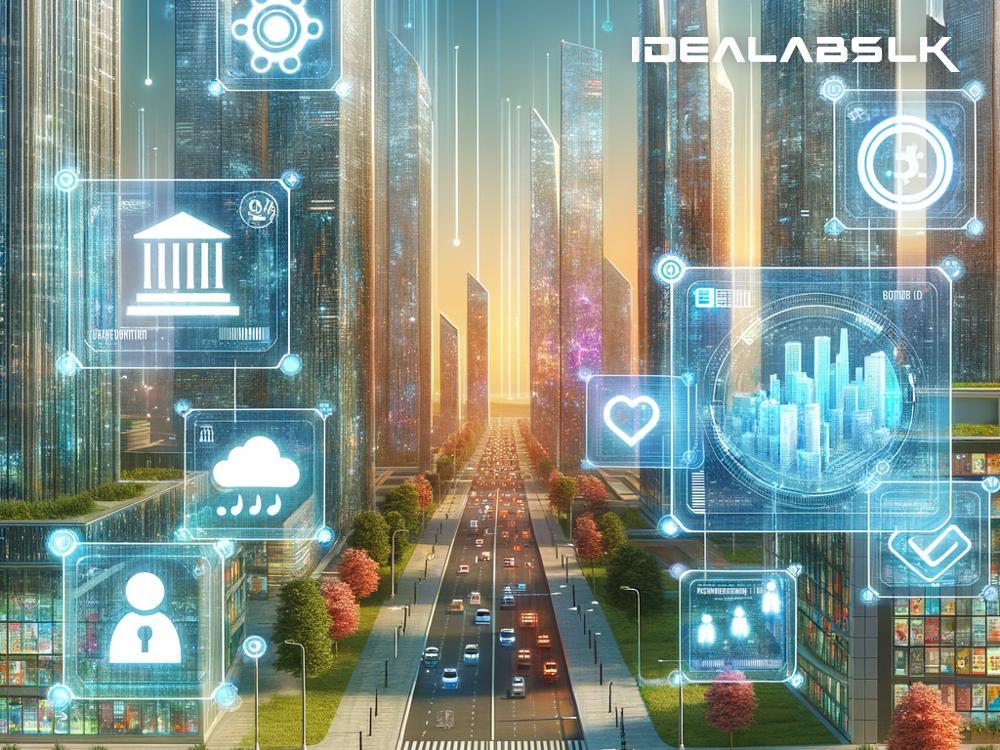Title: The Future of Government Services: The Blockchain Revolution
Have you ever found yourself waiting in a long line at a government office or caught up in a seemingly never-ending process to get a simple document? If so, you're not alone. But imagine a world where these hassles are a thing of the past, thanks to technology. The superhero in this story? Blockchain!
Blockchain technology, often associated with cryptocurrencies like Bitcoin, is a way of recording information in a manner that makes it nearly impossible to change or cheat the system. While it sounds complicated, at its heart, blockchain is just a chain of digital blocks that contain records of transactions. What makes it special is its security and transparency; once something is recorded in the blockchain, it's very hard to alter. This simple concept has the potential to revolutionize government services in several key ways.
Improving Security and Preventing Fraud
Imagine a world where identity theft, vote tampering, or misallocation of funds are virtually impossible. Blockchain can make this a reality. By creating an unchangeable record of transactions, personal information, and government actions, blockchain can significantly reduce fraud and corruption. For instance, if personal identities were recorded on a blockchain, it would be much harder for someone to fake your identity. This also applies to government spending, where blockchain can make it easier to track where every penny is going, reducing opportunities for mismanagement or fraud.
Streamlining Processes and Reducing Costs
Everyone dreads bureaucracy and the seemingly endless paperwork involved in getting government services. Blockchain introduces a level of efficiency that could dramatically streamline these processes. By allowing for secure, direct transactions between parties, it eliminates the need for intermediaries like notaries. This means faster services and lower costs for both the government and the citizens. For example, processing welfare payments or tax returns via blockchain could significantly reduce processing times and errors, making these services more efficient and user-friendly.
Enhancing Transparency and Trust
A common complaint about governments is a lack of transparency. Blockchain, by its nature, is incredibly transparent. Every transaction and its details are recorded on the blockchain, visible to anyone who has access to it. This means that citizens could track the progress of their filings or check how their tax dollars are being spent in real-time. Such openness could greatly enhance trust in government, making it easier for citizens to hold their leaders accountable and making governments more answerable to the public.
Revolutionizing Voting Systems
Blockchain could also transform how we vote, bringing an end to concerns about election security and voter fraud. By using blockchain technology, votes could be cast anonymously but also verified publicly. This system would make it nearly impossible to tamper with votes while also making the process more convenient. People could literally vote securely from the comfort of their homes, knowing their vote counts exactly as they intended.
Future Challenges
While the potential benefits of blockchain for government services are vast, there are challenges to overcome. These include ensuring the security of blockchain systems, addressing privacy concerns particularly related to personal data, and the need for significant changes in infrastructure and legislation to accommodate this new technology. Moreover, for blockchain to reach its full potential in government services, there’s a need for digital literacy, both among citizens and government officials, to understand and trust this new system.
Conclusion
The future of government services powered by blockchain technology offers a promising vision: one where governments operate with greater efficiency, transparency, and security. The road to a blockchain-powered government might be long and fraught with challenges, but the potential benefits make it a journey worth embarking on. Imagine a future where applying for a passport, voting in elections, or accessing public services is as easy as clicking a button, secure in the knowledge that your data is safe and your transactions transparent. This could be the reality with blockchain technology, marking a significant step towards modern, responsive, and citizen-focused government services. Let's embrace the blockchain revolution and look forward to a future with better, faster, and more trustworthy government services.

